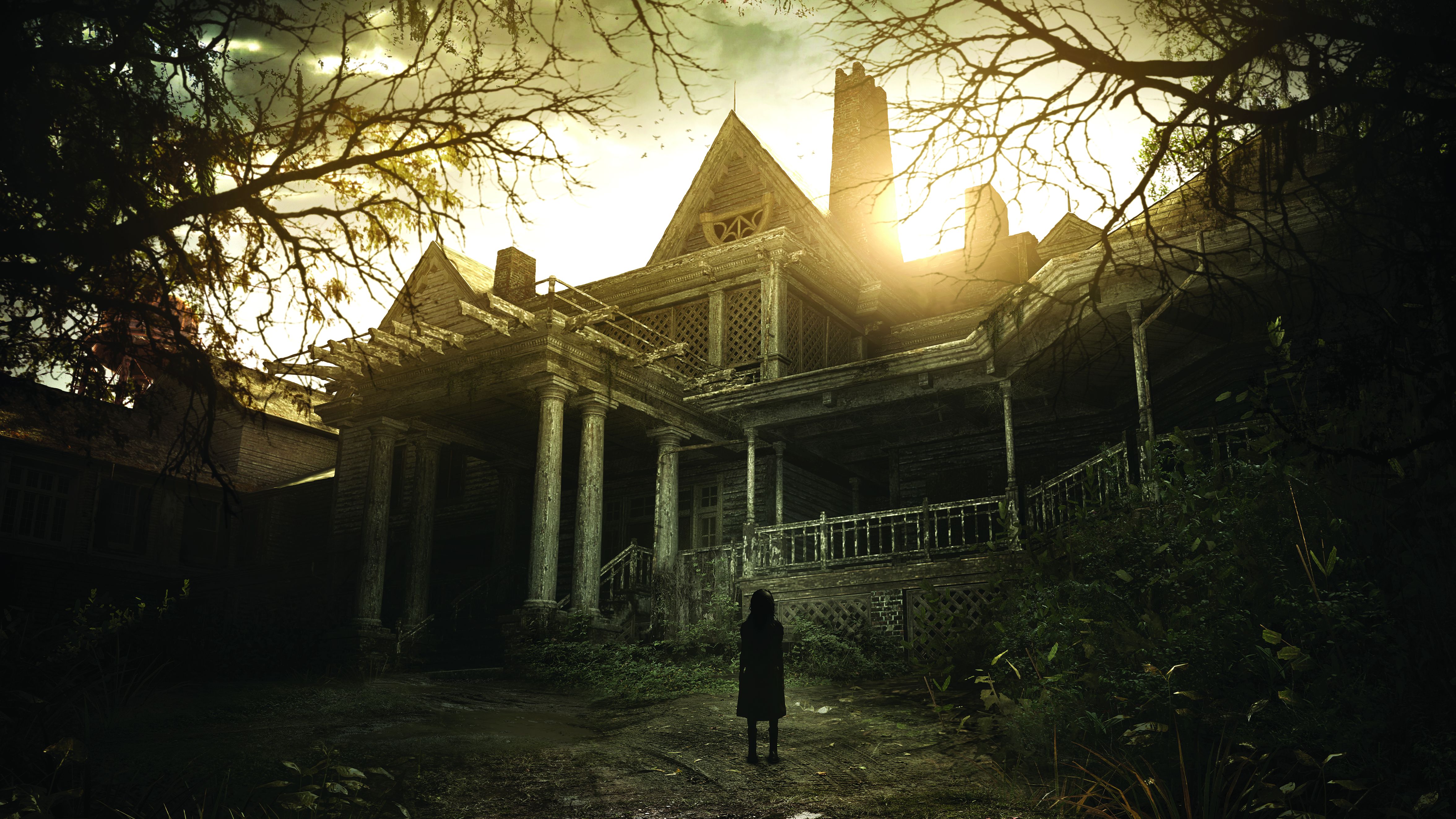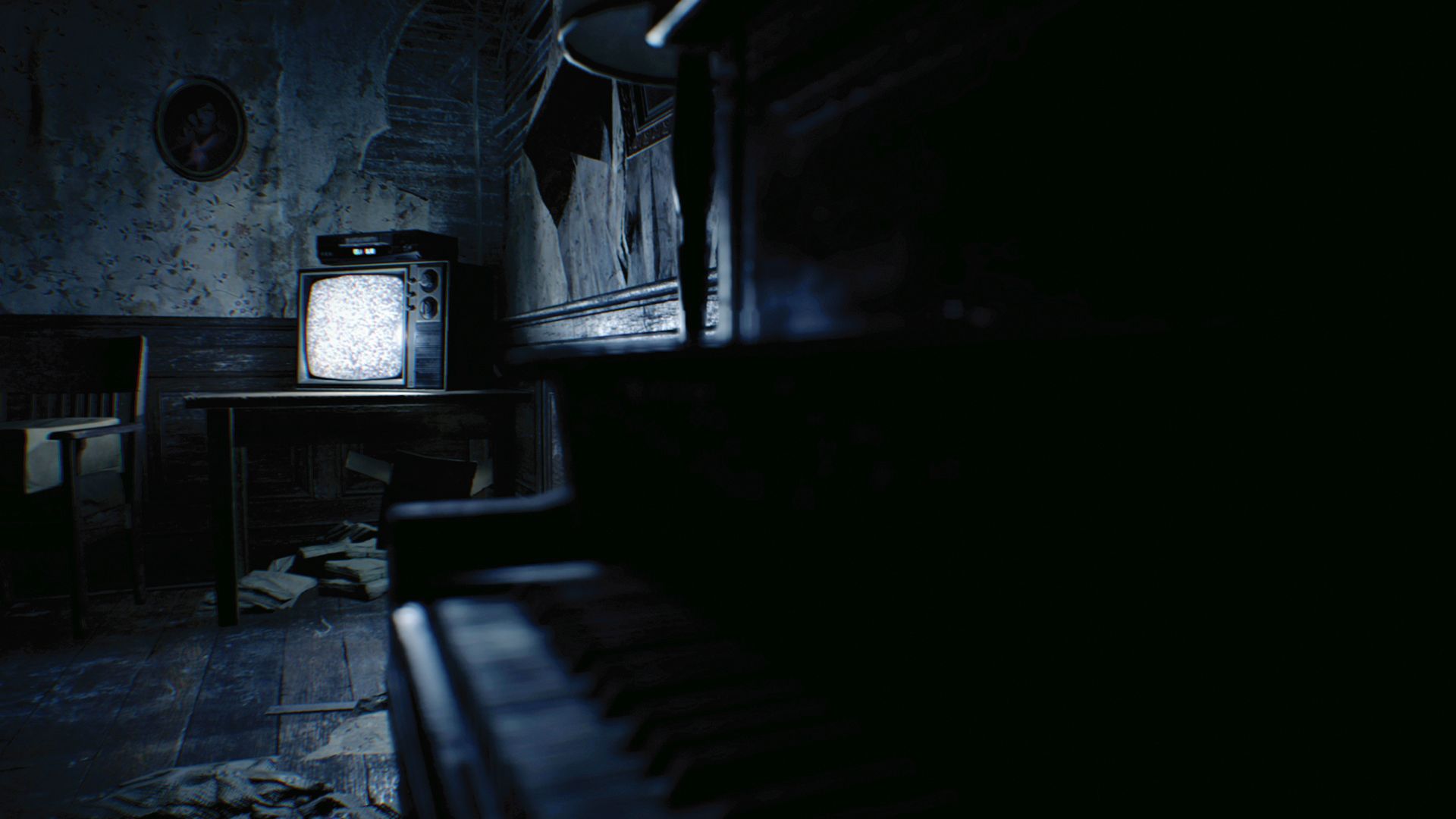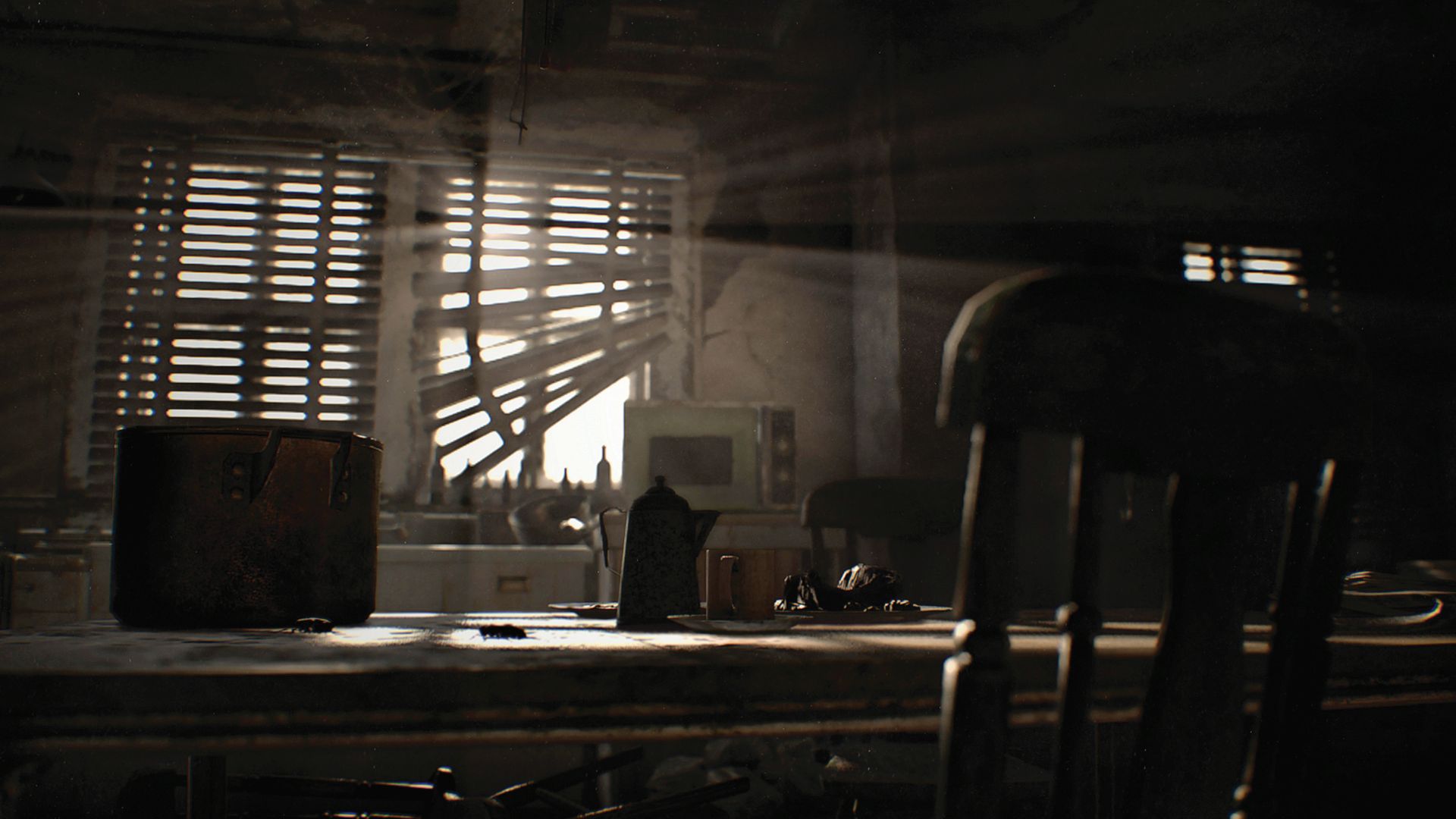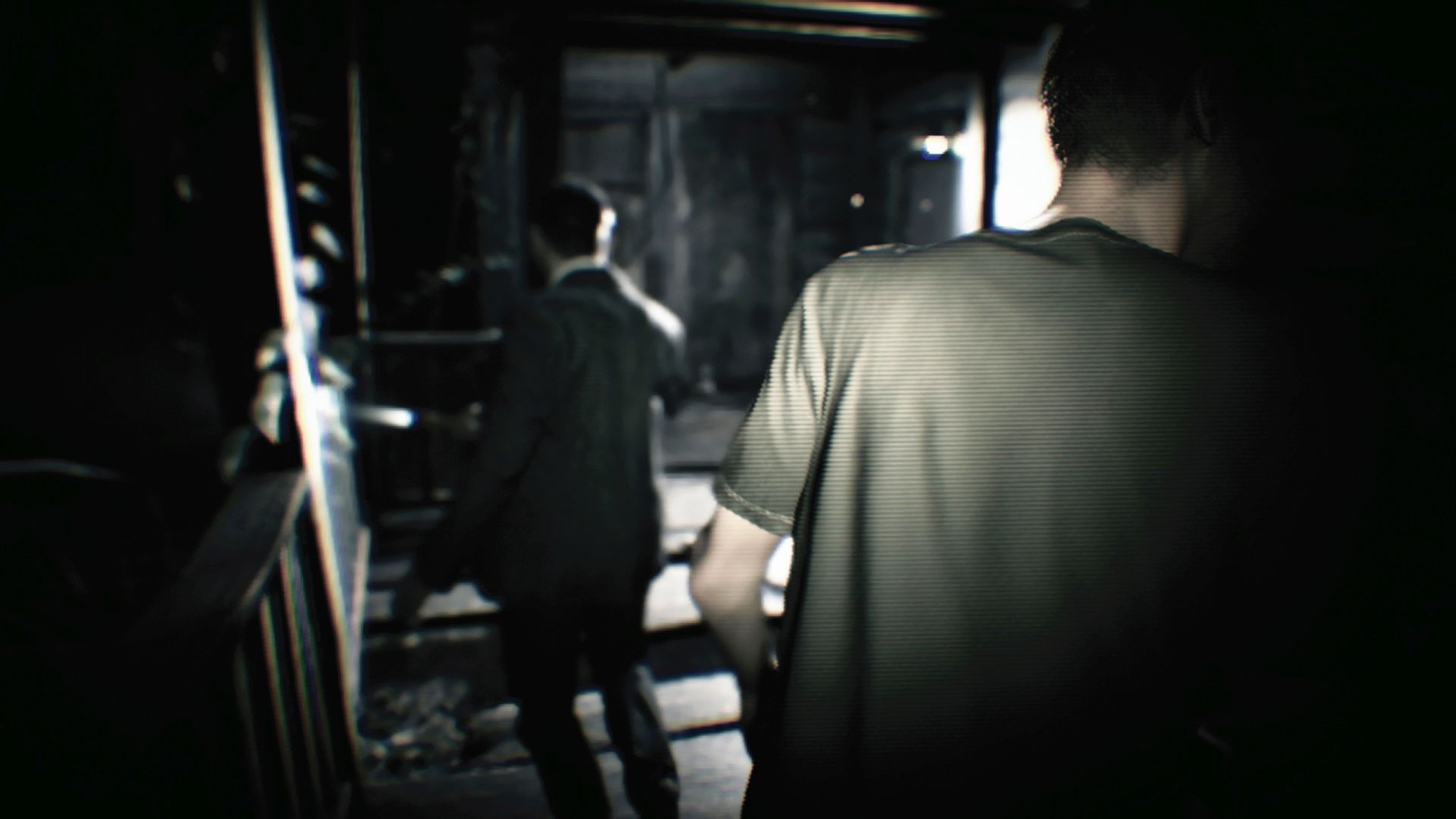Resident Evil 7: reinventing survival horror, again
The director of Resident Evil 7 talks to us about the horror series' switch to first-person VR.

Resident Evil needed to change. I am, I think, the only person to go on record saying they liked the action-packed, bloated sixth instalment, but even I knew the series’ post-Resi 4 era of non-stop set-pieces was outdated and over. So here comes a seventh entry that feels more inspired by the likes of Frictional’s Amnesia than anything else: a first-person survival horror game that bears little resemblance to anything the series has produced to date, but something that feels very modern.
“Resident Evil, as you know, has always been a horror game,” director Koshi Nakanishi says, “but it’s branched off into other tangents across the years, and one of the main focuses of this title was to focus on the series’ main strength. Instead of trying to do everything in one title, let’s try to do its strongest suit right, the best we can, and that’s horror. And also, to do that in a modern game. Like Resident Evil 1 or the remasters of Resident Evil 1, which are kind of the old-style game … let’s do that in a modern setting, with modern technology.”
Resident Evil, the 1996 original, was set in the Spencer Mansion, and followed the pioneering Alone in the Dark in popularising the fixed-camera-angle approach to survival horror. This formula grew tired by the mid-noughties, which is when creator Shinji Mikami returned to the series to make Resident Evil 4, possibly the best-crafted action game of all-time, and the originator of the over-the-shoulder third-person shooter camera angle used by so many games in its wake. It’s a series defined by this reinvention. Resi has the distinction of setting the standard for two different genres, but this new incarnation is entering territory that has been well-trod by other developers, especially on PC, for some time now. Nakanishi describes first-person as the ‘optimum’ way to convey horror to today’s players. I’d like to see Resi as the industry leader in this genre again. Is this the way?

Resident Evil 7 is set primarily in a mansion on a plantation. Players have an inventory system, as in previous games, and a demo, released exclusively on PS4 (disappointingly, but it will come to PC eventually) suggests a mix of puzzles in eerie locations as well as melee combat. The demo takes place in a run-down, near blacked-out cottage, a microcosm of a Resi mansion environment. You have to find a way out of the house. In the kitchen a dead bird has been stuffed in the microwave, there’s human flesh in the fridge and animal carcasses are lying around. Upstairs, a small room contains three eerily lifelike female mannequins. These can change position while you’re turned around, a little like the Weeping Angels from popular children’s television programme Doctor Who. There are at least two end states to the demo: both result in a deranged man, seemingly the ‘dad’ of the family that used to live in the cottage, attacking you and taking you captive.
But not every secret in the demo has been unearthed at the time of writing. There’s an axe that seems to serve no function and, weirder still, there’s a dummy finger that has some mystery purpose teased by Capcom, but even thorough players have yet to find out what that is. There’s a ghost girl who appears randomly in one sequence. One end state features a phone call in the attic of the house, and three different cryptic messages are left randomly by a mystery woman on the other end of the line. It’s certainly intriguing and the more I played it, the more I was impressed by the feel of the environment. I was let down by one very cheap jump scare, where a baby doll flops down from a ceiling for no real reason (contrived enough that it challenged my investment in exploring the environment), but otherwise it’s a gorgeous and tense place to be. I played using a VR headset and found myself leaning into parts of the scenery just to study them more closely.
I can get onboard with exploring an entire mansion of this stuff and its surrounding areas. The varying outcomes of the demo make me wonder if different players will experience different things playing through the game. To some extent, Nakanishi says, they will: “It’s a mix of scripted elements and AI-driven elements, so some elements everyone will experience the same and others it will be different.” This appeals to me, and I hope various unexpected events are triggered by different players’ approaches, as in this demo. This is why Konami’s now-legendary Silent Hills teaser PT proved such a hit on PlayStation 4. It feels like Capcom is hoping to produce a similar effect.

Given that there’s so much that’s new here, I ask Nakanishi what makes this still a Resident Evil game. “When I first played Resident Evil back in the day, what I thought was really entertaining about it was the fact you took on the role of this character who’s now famous but you didn’t know at the time, like Chris Redfield or Jill Valentine. You know there are zombies here, but why are there zombies here? Where am I supposed to go? I have no ammo. Am I even going to survive this? Making it through that survival horror experience to me was fun. And so one of the driving factors of this was to go back to that experience and make sure that anything that supports that experience from the previous Resident Evils, for example, the inventory, is carried over. Those things that don’t support that experience are left by the wayside.
Keep up to date with the most important stories and the best deals, as picked by the PC Gamer team.
“The goal of this demo is mainly to familiarise the user with the atmosphere that we’re going for in this game: exploration elements, some light puzzle-solving elements, but that’s not to say that anything that’s not there isn’t in the final game. It’s just that the demo is focused on one aspect. So a lot of things that you associate with Resident Evil will be in the final game.”
Expect combat to play a key part of Resident Evil 7, unlike other more passive horror first-person games on PC. Capcom is capitalising on the VR capabilities to make it feel like the enemies are overwhelming you and intruding your personal space.

“Enemies are not just fodder, easily destroyed or easily stopped,” Nakanishi says. “They’re almost always stronger than you, and that kind of adds to the horror element, like, ‘How do I defeat this thing? How do I get away from it?’ [We’ve] put a lot of effort into creating that interaction between the player and the enemies.” Combat has always been one of the series’ strengths when it comes to creating horror—crowd control in Resi 4, or the struggle in earlier Resi games. It will be key to getting this revival right.”
I expect Resident Evil 7 will cross into more psychological forms of horror than we’re used to from this traditionally gore-heavy series, too. Randomly appearing ghosts and shifting mannequins are designed to make players feel like they’re not in control of the environment, that it’s playing mind games with them. I love this. The more I play the demo, the more I dare myself to see if I can make scary stuff happen. This is a cool thing Capcom has built—a gorgeous-looking house that I want to unlock the secrets of. This feels like the right direction for a series that hasn’t seriously dabbled with proper survival horror since the early part of the last decade. I hope it makes the most of that first-person perspective in how it uses environmental design, and that it can recapture the feeling of exploring the Spencer Mansion for the first time, only presented in a very contemporary way.
The VR element is interesting and will frighten the bejesus out of some, but I don’t personally feel that VR is at a place where it can deliver the resolution to enjoy the breathtaking art Capcom has created. I want to experience it as-is. This is a very interesting game for a major publisher to make, much as Alien was for Sega in 2014, and I hope they can draw similar life out of the first-person horror genre and make one of my favourite series relevant again.


